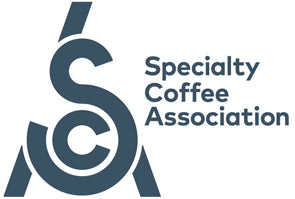Tim Wendelboe - Tatmara - Ethiopia (FILTER)
Origin
Ethiopia
Variety
74110
Processing
Natural
Altitude
Various masl
Roast Profile
Filter
Taste Notes
Notes of Floral, tropical fruits & strawberries
Coffee Facts
Tatmara is one of the most beautiful coffee plantations I have ever been to. The coffee grows inside a forest full of old native trees, spice plants, shrubs and wildlife. Negussie does not apply any mineral fertilisers or agrochemicals to his farm and weed control is done manually. Still the trees are healthy and producing well which is most likely due to the healthy forest soils that are rich in soil biology that provide the trees with nutrients. I personally believe that these coffees are so complex, full of flavour and easy to extract not only because of the cultivar that are grown but because they grow slowly under shade trees in very healthy soils in their native environment. (After all the arabica coffee trees are native to the forests of Kaffa.)
Of course the natural process also contributes with extra complexity and fruity flavours but as you may know I am normally not the biggest fan of natural processed coffees. This is because they are really difficult to produce well, especially in regions that have rain showers during the harvest like in Kaffa.
I often find that natural processed coffees have overpowering «funky» flavours of fermented fruit due to uncontrolled fermentation during drying. However, I do like very clean and precise natural processed coffees and when done well with the right cultivars they can taste very juicy and fruity in a refreshing way. The coffees from Tatmara is a good example of a natural processed coffee that I really like. Negussie has been trained by the Belco team on how to process and dry the coffees and the results is a really clean and tasty natural processed coffee with ripe flavours of tropical fruits and strawberries.
Like last year the coffees from the 2023/24 harvest have a subtle “natural processed” flavour profile. I believe it is due to the dry weather conditions during the harvest that made drying more efficient and also because Negussie has built more drying tables and has more drying capacity on the farm. It means that he can dry the coffee cherries in very thin layers on the raised beds which makes the cherries dry faster. A more efficient drying stops the spontaneous fermentation inside each coffee cherry before it can influence the flavour of the coffee too much. This makes the coffee taste less fermented and maybe more similar to a honey processed coffee.
For this harvest we also asked Negussie to separate every single daily picking and to store them separately in air tight grain pro bags after they were finished drying. By doing this we were able to taste through all the daily pickings and reject the few lots that had issues with quality. Instead of bulking everything together, we decided to blend the lots that had similar qualities and of the same cultivar.
Negussie has also invested in a dry mill to remove the husks from his naturals before they are transported to the dry-mill in Addis Ababa. That means he has better control and can speed up his logistics which also helps preserve the quality of his natural processed coffees. We were able to mill Negussie’s coffees on a better dry mill and vacuum pack the coffees for the first time this year which means they taste better and fresher than ever before.



